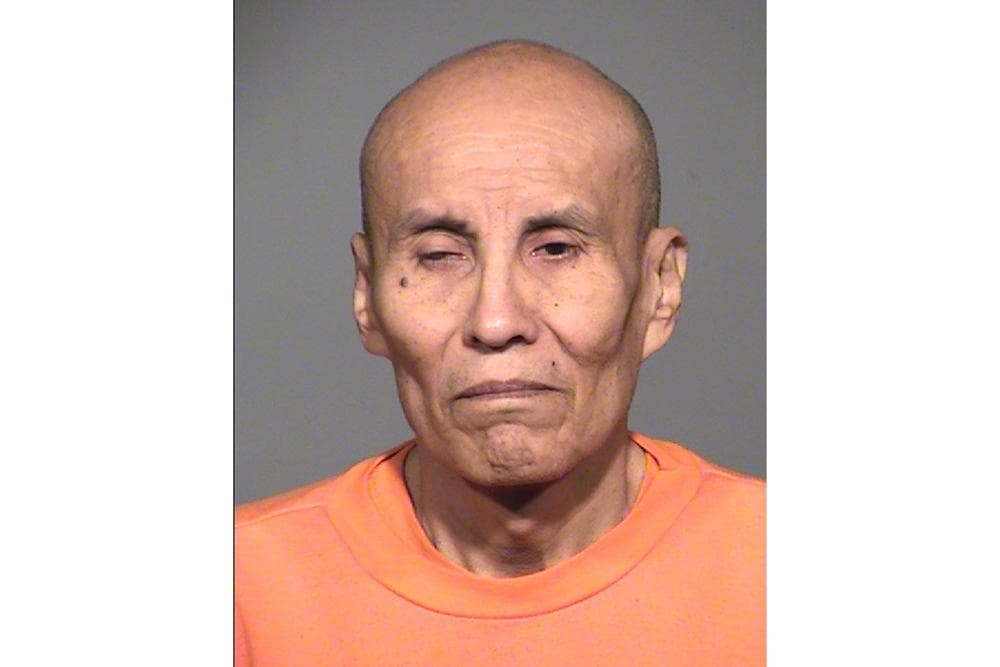NEW YORK – With Arizona set to carry out its first executions in almost eight years, the state’s Catholic bishops fear that once the practice resumes it will be hard to stop.
“Unfortunately, once these executions begin it is likely many more will come in relatively quick succession,” the Arizona Catholic Conference said in a May 3 statement, adding that they “remain steadfast in our continued opposition to the death penalty, especially in this modern era.”
Death row inmates Clarence Dixon and Frank Atwood are both scheduled for execution in the near future. Dixon’s execution is scheduled for next Wednesday, May 11. Atwood’s for June 8. The last execution in the Grand Canyon State was in 2014.
Dixon was convicted of murder in the 1978 killing of 21-year-old Arizona State University student Deana Bowdoin. In a ruling released May 4, Pinal County Superior Court Judge Robert Olson rejected an argument from Dixon’s defense lawyers that his mental state prohibits his ability to rationally understand the State’s rationale for the execution. Dixon’s lawyers have already said they will appeal the decision to the Arizona Supreme Court.
Dixon will be put to death by lethal injection, after he declined to choose between that method or the gas chamber when asked by officials. The possibility of the execution being carried out by way of the gas chamber was another point of controversy, as the practice hasn’t been used in the United States since 1999.
Atwood was convicted of murder in the 1984 killing of eight-year-old Vicki Lynn Hoskinson in Tucson, Arizona, in 1984. The Arizona Supreme Court earlier this week scheduled his execution for June 8. He, too, can choose to die by lethal injection or gas chamber.
The Arizona bishops – Auxiliary Bishop Eduardo Nevares of Phoenix, Bishop Thomas Olmsted of Phoenix, Bishop James Wall of Gallup and Bishop Edward Weisenburger of Tucson – said the resumption of capital punishment in Arizona “furthers a culture of death that is all too common in our society and is something we are called to reject,” and is a system “fraught” with problems.
At the top of their list of problems is the racial and socioeconomic makeup of the people that are executed.
“Across the nation, including Arizona, the use of the death penalty is troublesome because it is often influenced by factors such as geography and is disproportionately imposed on people of color and of limited economic means,” the bishops said.
The bishops are also concerned about the risk of executing an innocent person. They cite that more than 180 people in the United States have been wrongfully convicted and sentenced to death only to be later exonerated. There have also been 10 people in Arizona alone that have been released from death row after evidence was later found to exonerate them.
The bishops also noted that the “execution of prisoners can also be problematic in that it may deny them a final chance at redemption and salvation.”
“As Catholics, we believe that all of us, including even the worst sinner, has a chance at forgiveness and to reconcile themselves with God as long as they live,” said the Arizona Catholic Conference statement. “While some inmates on death row do seek forgiveness, the execution of others permanently closes this door.”
The use of the death penalty in Arizona was halted after the botched execution of Joseph Wood in 2014. Wood was sentenced to death for murdering his ex-girlfriend and her father in 1989. When it came time for his execution, Wood was injected with a lethal cocktail of drugs that left him gasping and snorting for more than two hours.
Thirty-seven people have been executed in Arizona since capital punishment was reintroduced in the state in 1976. Today, Arizona has 113 prisoners on death row.
The state’s bishops argue the death penalty isn’t needed in modern society.
“We are fortunately living in a time where modern prisons create an environment that does not require the death penalty to keep us safe. Our society is able to achieve justice and protect its population from harm,” the bishop’s statement said. “As the Bishops of the Arizona Catholic Conference, we, therefore, encourage all people of goodwill to join us in praying and advocating for an end to the death penalty.”
They added that when discussing the issue of capital punishment “it is first critical to never forget the horrible crimes committed and the terrible loss experienced by the families of victims” and that they “fervently pray for their healing and that their needs are never forgotten!”
Follow John Lavenburg on Twitter: @johnlavenburg













